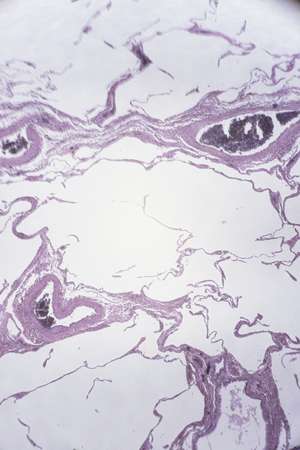Protein linked to invasive spread of triple-negative breast cancer may lead to targeted therapies

Triple-negative breast cancer (TNBC) is one of the most aggressive forms of the disease and affects almost one in seven of the 1.5 million women diagnosed with breast cancer worldwide each year. TNBC tumors are missing three key proteins that can be targeted by conventional breast cancer therapies. Consequently, patients often relapse after treatment and suffer metastasis—the spread of cancerous cells and tumor growth to other parts of the body.
Targeted therapy for TNBC is limited by a lack of understanding of the molecular mechanisms behind this form of the disease. Now, Qiang Yu and co-workers at the A*STAR Genome Institute of Singapore, together with scientists from Singapore and the United States, have discovered that a protein known as a protein tyrosine phosphatase—encoded by the UBASH3B gene—is overexpressed in one third of TNBC patients and could form the basis of a targeted therapy for TNBC1.
"Patients with TNBC often have a worse prognosis than other breast cancer types, yet there is no drug target for therapy," states Yu. "Therefore, we began an integrated genetic investigation to uncover the molecular processes behind the disease."
Using gene array technology, Yu and her team analyzed gene expression in human breast cancer cell lines and both TNBC and non-TNBC tumors in order to pinpoint genetic differences. After establishing the main genes affecting disease outcome, the researchers systematically knocked down the expression of each. Their results showed that the UBASH3B-encoded protein—a T-cell receptor repressor—was overexpressed in the most invasive TNBC cell lines.
"We discovered that UBASH3B modulates the protein expression of the epidermal growth factor receptor, promoting invasion and allowing TNBC to take a stronger hold," explains Yu. "In addition, UBASH3B is usually inhibited by an anti-invasive microRNA, but this effect is often downregulated in TNBC, which aids protein tyrosine phosphatase overexpression."
The team found that a high level of UBASH3B expression in TNBC patients is directly linked to a poor survival rate. By knocking down UBASH3B in TNBC-affected mice, Yu's team was able to substantially increase the life expectancy of the mice and reduce their chance of metastasis.
Further clarification of TNBC molecular mechanisms is required but Yu is confident that UBASH3B could prove crucial in the development of TNBC-targeted therapies. "UBASH3B could be a potential drug target, and equally it could be used as a biomarker to predict the outcome of TNBC" says Yu. "We will continue to pursue a more clinical validation to verify these approaches."
More information: Lee, S. T., Feng, M., Wei, Y., Li, Z., Qiao, Y. et al. "Protein tyrosine phosphatase UBASH3B is overexpressed in triple-negative breast cancer and promotes invasion and metastasis." Proceedings of the National Academy of Sciences USA 110, 11121–11126 (2013). dx.doi.org/10.1073/pnas.1300873110














